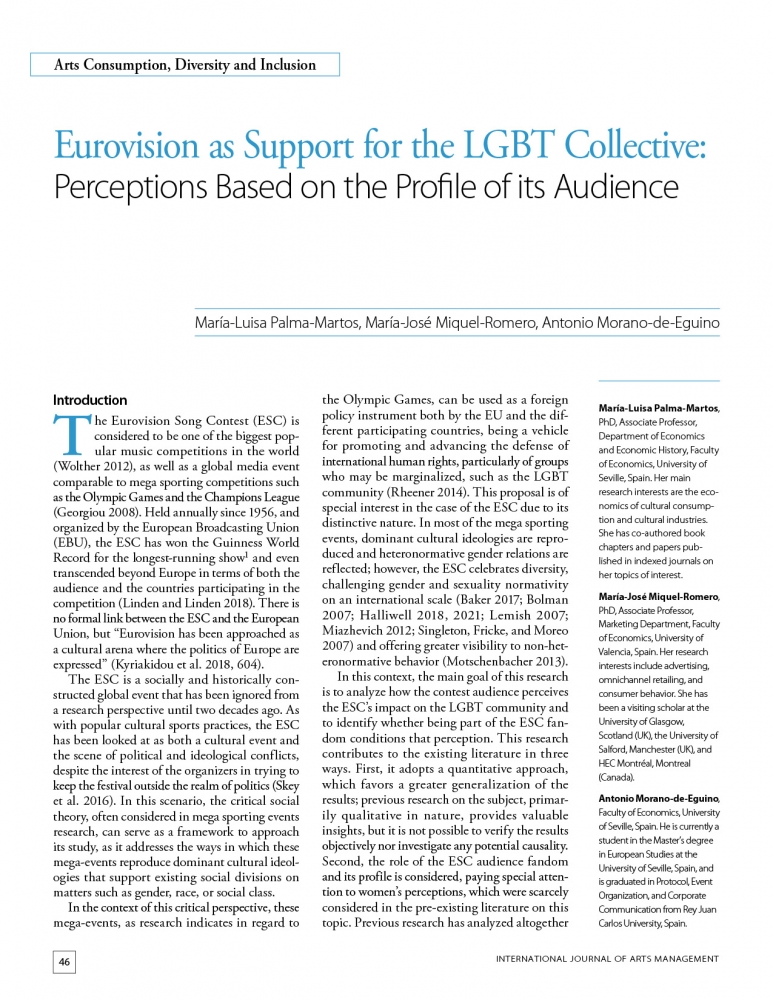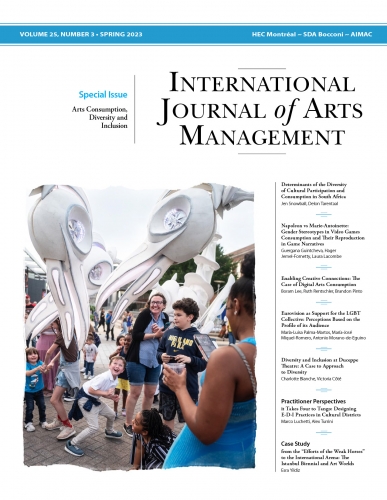Eurovision as Support for the LGBT Collective: Perceptions Based on the Profile of its Audience
Produit: Article
21,00 $ CA
(en anglais seulement)
María-Luisa Palma-Martos, María-José Miquel-Romero, Antonio Morano-de-Eguino
María-Luisa Palma-Martos, PhD, Associate Professor, Department of Economics and Economic History, Faculty of Economics, University of Seville, Spain. Her main research interests are the economics of cultural consumption and cultural industries. She has co-authored book chapters and papers published in indexed journals on her topics of interest.
María-José Miquel-Romero, PhD, Associate Professor, Marketing Department, Faculty of Economics, University of Valencia, Spain. Her research interests include advertising, omnichannel retailing, and consumer behavior. She has been a visiting scholar at the University of Glasgow, Scotland (UK), the University of Salford, Manchester (UK), and HEC Montréal, Montreal (Canada).
Antonio Morano-de-Eguino, Faculty of Economics, University of Seville, Spain. He is currently a student in the Master’s degree in European Studies at the University of Seville, Spain, and is graduated in Protocol, Event Organization, and Corporate Communication from Rey Juan Carlos University, Spain.
ABSTRACT
The main goal of this research is to analyze how the Eurovision Song Contest (ESC) audience perceives the competition’s impact on the LGBT community and to identify whether being part of the ESC fandom conditions that perception. Most of the existing research on the topic uses a qualitative approach and focuses on a specific audience profile; however, this study adopts a quantitative approach conducted in an exploratory manner and focuses on general audience perceptions, identifying differences among them based on age, gender, sexual orientation, and especially involvement with the contest, analyzing the role that being a fan can play. Utilizing a sample of 238 individuals, the research mainly concludes that the contest audience perceives the ESC as favoring merely the visibility of the LGBT collective; however, highly involved fans perceive not only that visibility but also a greater contribution of the ESC to the defense and acceptance of the rights associated
with the LGBT community.
KEYWORDS
Eurovision Song Contest; Audience Profile; LGBT; Cultural Consumption

